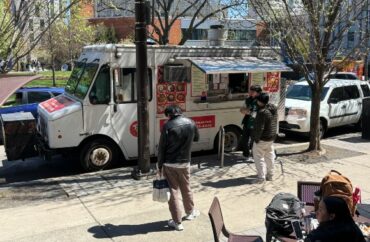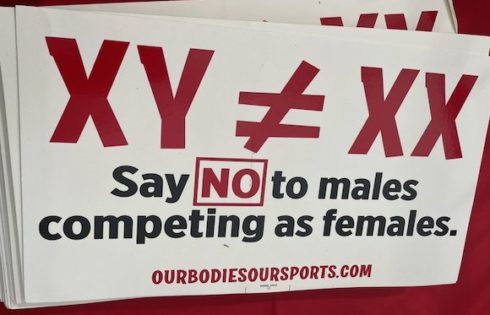
Food trucks are popular, and they’re facing a lot of ‘unnecessary and targeted regulatory burdens,’ lawyer says
PHILADELPHIA – Drexel University’s recent enforcement of a Philadelphia overnight parking law has caused a dispute between the university, the city, and the food trucks on campus.
Thousands have signed a student-led petition calling on the university to reverse the decision. Meanwhile, one food truck staffer told The College Fix the change is really hurting business.
Riad Hamdi from the Nanu’s Hot Chicken food truck said the enforcement was “definitely” affecting profit margins.
“For us, instead of working nine hours, we’re now working six, or five hours,” he said. “Usually we close at 3 a.m., … so I’m missing three hours.”
Hamdi told The Fix this week, “This affects my monthly salary… a lot.”
The university notified the food trucks on March 26 that they would no longer be allowed to park on campus overnight starting April 4, according to an article from The Triangle, Drexel’s student newspaper.
The Fix reached out to Drexel’s executive director of media relations, Britt Faulstick, for comment on the dispute multiple times over the past week, but did not receive a response.
During an open forum on March 31, hosted by the Undergraduate Student Government Association, Drexel Police Chief Mel Singleton explained that the university’s concern was “health and safety,” including students “crossing the street with little space between the trucks.” He cited city laws that restrict street vendors’ ability to park overnight, The Triangle reported.
However, Philadelphia City Council Member Jamie Gauthier, a Democrat who represents University City, told Fox 29 that the laws cited by the university were purposely enforced selectively by the city to ensure the food trucks could survive.
“Drexel is choosing to enforce the law in this way and I think they should listen to their food truck community as a vital part of our small business community and they should also listen to their students. We should have a city that is welcoming to food trucks because food trucks help enhance Philadelphia’s economy and offerings,” she told the news outlet.
Gauthier additionally said in an Instagram post that she would “explore legislative options to protect these small businesses” if Drexel did not “reverse course.”
Some food trucks have decided not to leave in hopes that Gauthier’s plan goes through, The Philadelphia Inquirer reports.
The Fix emailed Gauthier’s office multiple times for comment, but it did not respond.
A vast array of students also oppose the decision, including Esports team president Claire Toomey.
She created a petition asking the university to reverse its decision. As of Wednesday, the petition has more than 4,800 signatures.
Toomey told The Fix via email that she made the petition because “it was heartbreaking to see my favorite food trucks go out of business.”
“Many students were equally devastated, sharing graduation photos and stories with the trucks,” she said. “I don’t really have a stake in things other than just being a student, but I noticed no one was organizing to stop or prevent it, so I decided to step up and make the petition with hopes of passing the effort onto someone more qualified.”
“That didn’t end up happening though,” she said.
Toomey went on to explain how the food trucks are “a community staple.”
“It’s not just students, but faculty, staff, and nearby workers were all equally disappointed. The food truck workers are up earlier than any other place around here and remember our names and orders with a smile for an affordable price,” she said.
“The trucks that have been in the area for this long do not cause issues, and we felt like the punishment was unjust. Why fix something that’s not broken, you know?” she told The Fix.
Commenting on the dispute, a lawyer with the Institute for Justice, a nonprofit, public interest law firm, expressed a favorable opinion of the food trucks.
“Food trucks are a great, low-cost, accessible way for entrepreneurs to get into the food-service industry,” attorney Robert Belden said in a recent interview.
He told The Fix that “as food trucks have grown in popularity over the years, they have also faced unnecessary and targeted regulatory burdens, such as restrictions on where they can sell food or park.”
“These added burdens make no sense because food trucks are just as safe and healthy as other food-service businesses and are a boon to their local economies, including to brick-and-mortar restaurants,” he said.
Belden said he was encouraged by the news “that the City of Philadelphia is considering amending its code to clarify that this is lawful.”
MORE: More than 20 colleges join initiative to address male enrollment decline
IMAGE CAPTION AND CREDIT: Students wait in line for Kami, a Korean food truck, on 33rd Street near Drexel University in Philadelphia. James Samuel/The College Fix
Like The College Fix on Facebook / Follow us on Twitter






Please join the conversation about our stories on Facebook, Twitter, Instagram, Reddit, MeWe, Rumble, Gab, Minds and Gettr.